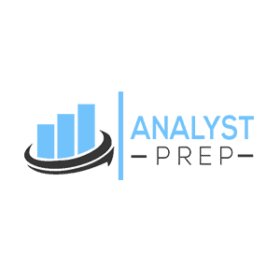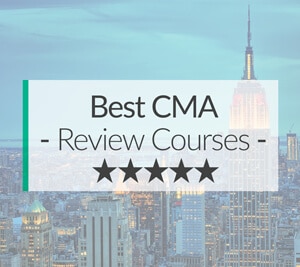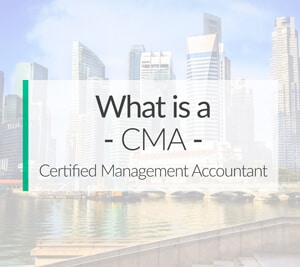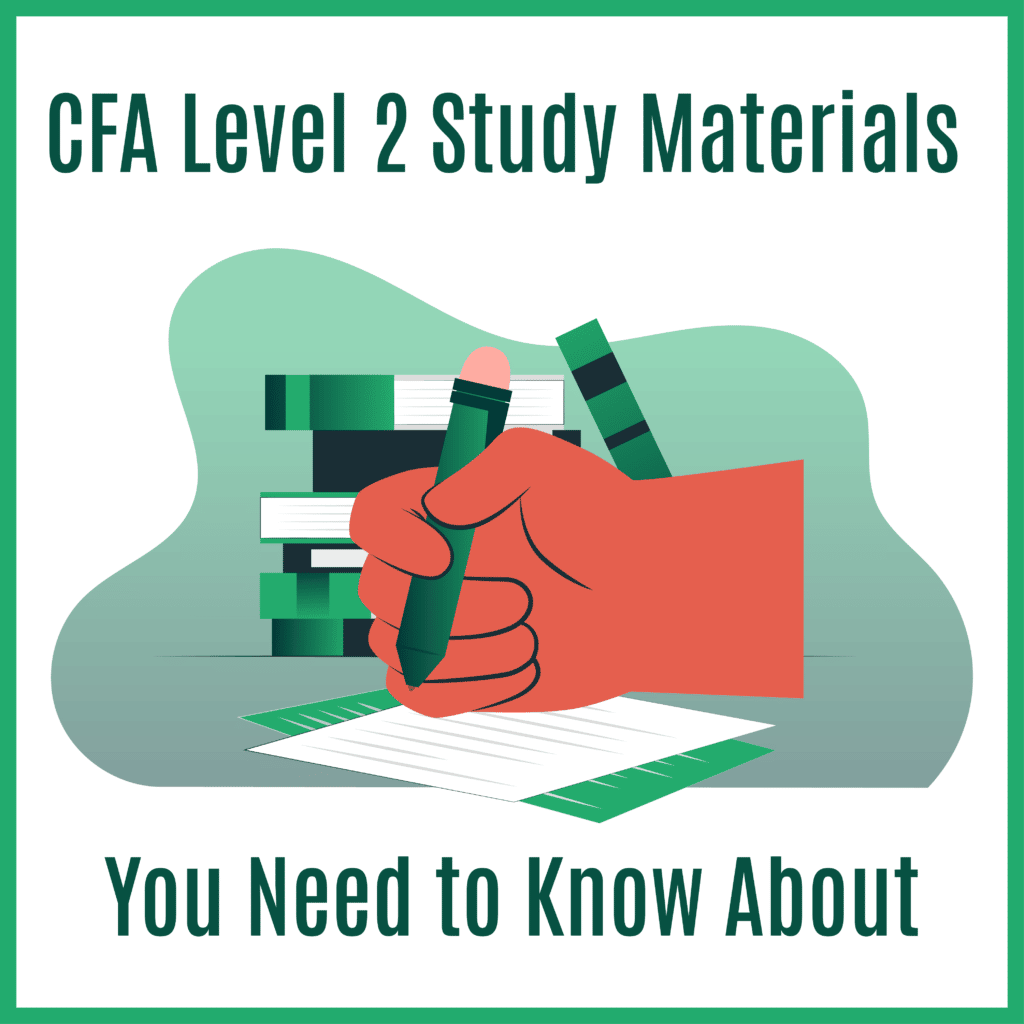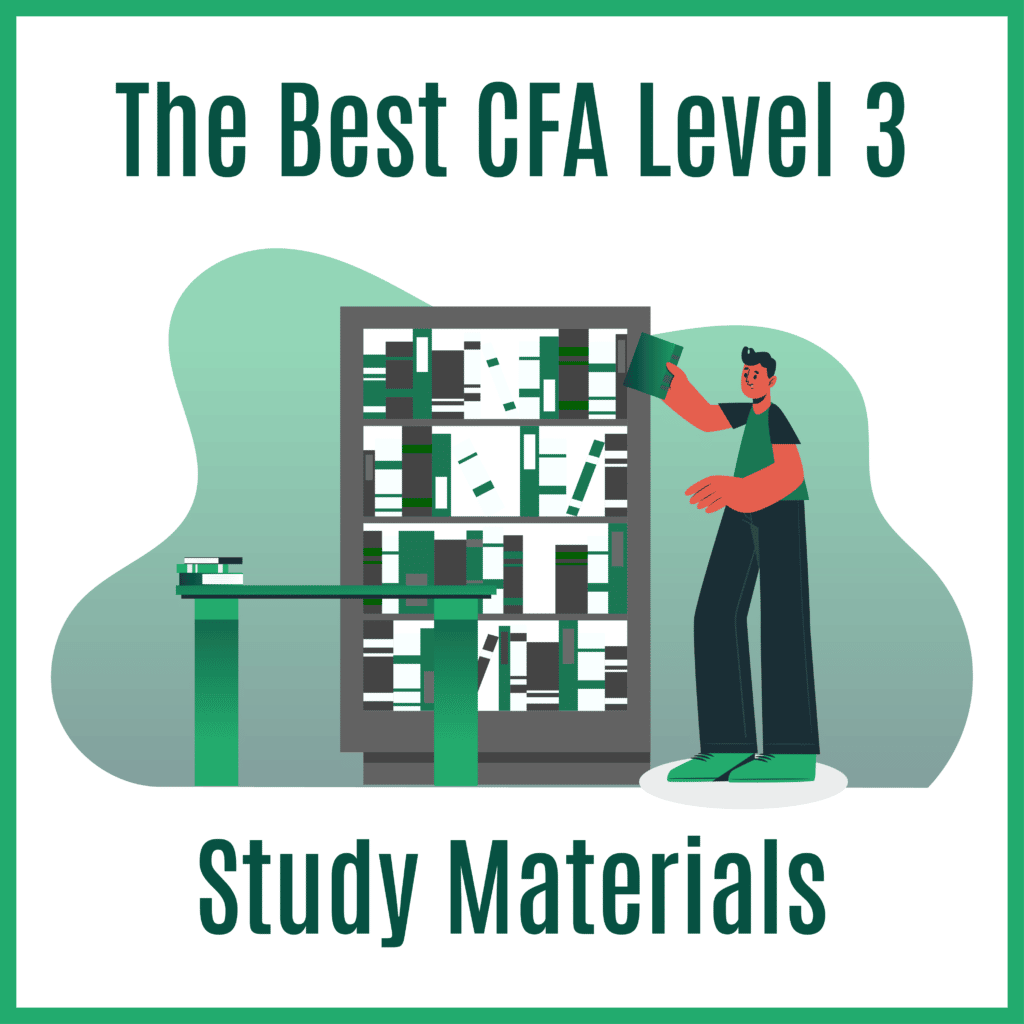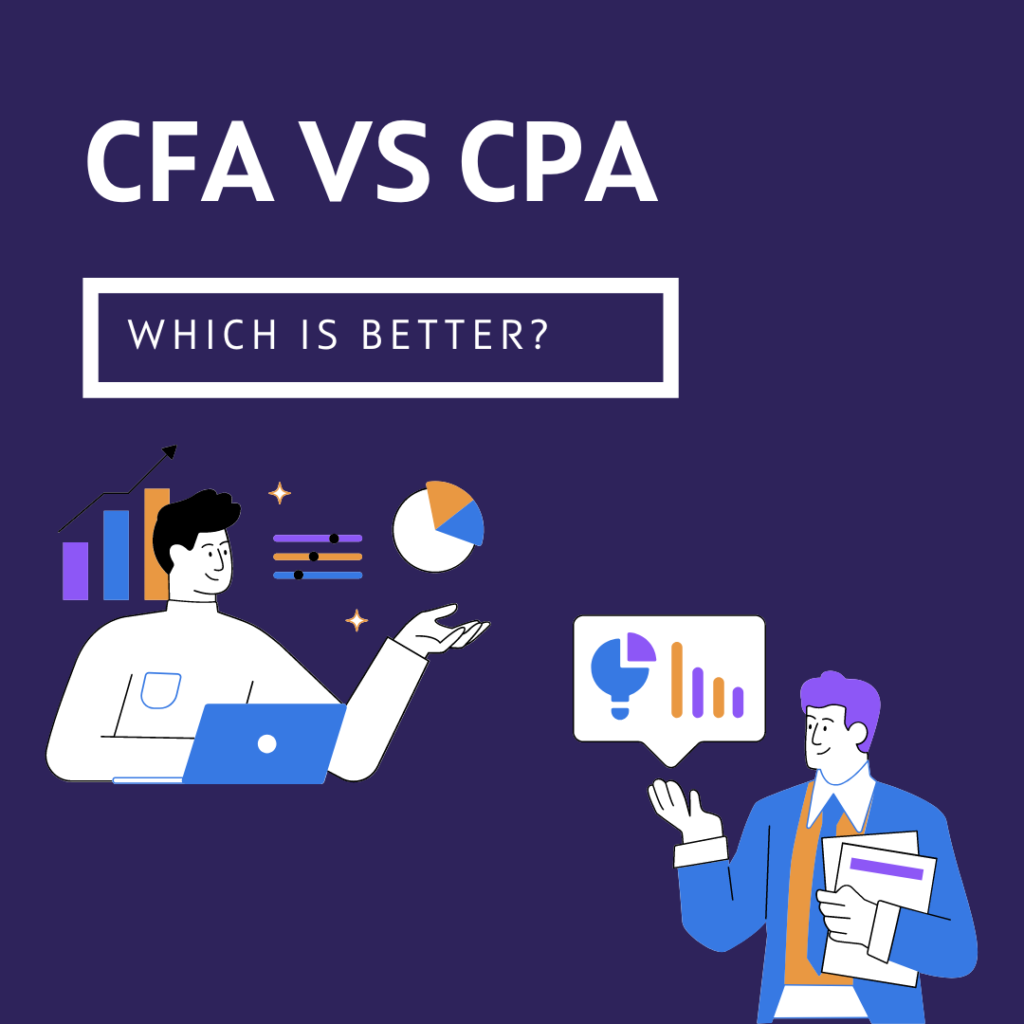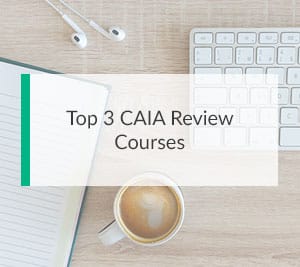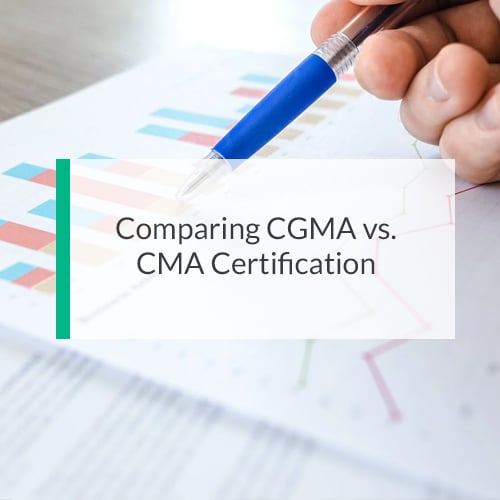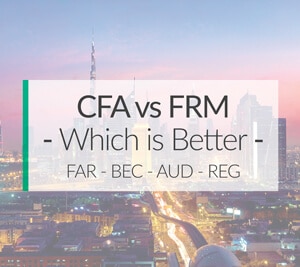Wanting to become a certified investment management analyst? The CIMA designation is definitely worth the effort.
Picture this: A world where people and businesses are swimming in money, eager to dive into the ocean of investment opportunities—be it the glitzy realm of real estate, the promise of retirement planning, or the thrill of risk management.

But here’s the catch: they’re lost looking for a guide. And guess who that could be? You! 🌟
Okay, we get it. This depiction might be a little cringy, but it’s true. There are tons of opportunities in finance.
With the right education, you can end up with a shiny investment analyst certification badge on your chest and become the go-to guru who turns financial risk management dreams into reality.
But first, you’ll want to make sure that the CIMA certification is the one for you. After all, there are other certifications that exist, including the CIBA, CFA, CFP, and more.
Our expert team has taken a deep dive into each one, exploring what’s required: the good, the bad, and the ugly. We’ve also combed through pages of reviews from finance professionals who have gone through the certification process.
Here’s what we’ve found:
#1 Certified Investment Management Analyst (CIMA) Certification
Aspiring investment consultants should consider becoming a Certified Investment Management Analyst. The CIMA professional skill set involves a great deal of consulting expertise, so it’s a great choice for investment professionals who want to enter that field.
All CIMAs are specialized in topics such as asset allocation, due diligence, ethics, investment policy, and more. Because of that, CIMAs tend to work in investment firms, managing large accounts or interacting with clients.
CIMA Education Requirements
Before you can become CIMA certified, you must have at least 3 years of work experience in financial services. Plus, you also need to possess a satisfactory ethical record as determined by the Investments and Wealth Institute (IWI). Once you’ve met both prerequisites, you’ll be able to take the CIMA certification examination. The test is 140 questions long, and you’ll have 5 hours to complete it— You’ll be certified as soon as you pass.
CIMA is easy compared to the CFP, especially if you’re a PM and understand investments. I have both, and you can bang out the CIMA in one month if you dedicate most of your time and focus on it. It’s obviously more investment-oriented and can help with any jobs that have that specialization, whereas the CFP barely touched on investment and spoke about ETFs as if they’re an asset class versus an investment vehicle. I felt the investment portion of the CFP was pretty outdated, but it’s still the more valuable certification.
Reddit Review – One_Huckleberry_2265
CIMA Careers and Salaries
Typically, someone with a CIMA certification can expect to make around $95,000 a year in a consulting position. If you stick with it long enough, you can even make as much as $111K— but positions like these are a little harder to come by. Either way, this is a good career to get into if you want to make a great living as a financial professional.
The job outlook is also very promising. Investment firms will always need the skill set that a CIMA brings to the table, which means you’ll be an appealing candidate for a ton of financial analysis and financial management positions. Just look at the AICPA’s CIMA job board to see for yourself!
Or check out our number one CIMA certification prep provider, Kaplan.

The Kaplan CIMA program is often the top choice for experts and students due to its comprehensive curriculum that aligns closely with the CIMA exam requirements. Its reputation for high-quality instruction, flexibility in study schedules, and a variety of learning formats to suit different learning styles make it stand out. Kaplan CIMA Prep’s use of practical examples and real-world scenarios helps students apply theoretical knowledge, which is highly valued by both students and professionals in the field.
#2 Chartered Financial Analyst Certification
A CFA is considered by many to be the gold standard for financial certification for investment analysis. This is largely due to the amount of knowledge required to become a CFA and the difficulty of the CFA exam. Generally, CFAs use their financial knowledge to help clients make investment decisions and enhance financial markets.
CFA Education Requirements
As you might expect from one of the best finance certifications, the CFA Institute has strict educational requirements for aspiring Chartered Financial Analysts.
In order to get started, you need four years of work experience and a bachelor’s degree. You also need an international passport—don’t be too surprised, this is a globally recognized certification—and then you have to meet their professional conduct admission criteria. Only then can you start the process of becoming a CFA.
Becoming a chartered financial analyst requires you to pass three sequential exams. These are very difficult and only have a pass rate of around 40%, so you’ll want to look into a good CFA prep course to help you study.
Here’s what one CFA designee had to say about his CFA experience with Analyst Prep.
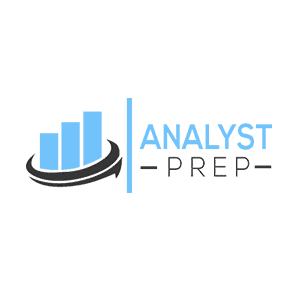
I personally learn best by reading/writing notes, so I loved the short LOS Notes that took pages of CFA texts and condensed them into smaller pieces with key terms highlighted. This helped me get through the materials quickly.
Analyst Prep offers a HUGE Q-Bank for all sections. I found the Q-Bank very useful when working on ethics and GIPS specifically. I found the videos helpful when working through the text as a way to reinforce topics. Analyst Prep offers 5-6 full mocks that increase in difficulty, with the final mocks being significantly more “difficult” than the day of the exam.
CFA Careers and Salaries
The high education requirements for a CFA really pay off once you enter the workplace. Typically, a starting salary for a CFA is around $185K a year, but more experienced financial professionals can quickly find themselves making upwards of $322K a year.
Additionally, the job outlook is very good for CFAs due to their high demand. The BLS currently reports the job outlook for CFAs between 2019 and 2029 as 5%. However, they also expect there to be a great deal of competition, so you’ll have to really know your stuff if you want to compete!
Best CFA Prep Course: Analyst Prep

Analyst Prep’s course catalog is expansive, encompassing a comprehensive review course for the challenging CFP exam. The quality mirrors their CFA course offerings, but the CFP course adds an edge by providing an ongoing estimate of your potential exam score. As you progress through the material, this score refines, guiding you to the optimal moment when you’re primed to take the exam and succeed!
You might also consider getting both a CFA and a CFP! See this Redditt review below to see how dual certification can help:
“Our investment officer has both his CFA and CFP. He does not have his own clients and will only meet with firm clients in special circumstances. But it allows him to be brought into a lot of technical and planning discussions. It also seems to give him an overarching perspective of the client experience, which adds to our team substantially.” – Reddit User tdgross
#3 Certified Financial Planner (CFP)
Becoming a Certified Financial Planner means you’ve been formally recognized as an expert in the areas of financial planning, taxes, insurance, estate planning, and retirement.

But most importantly, certified financial planners have a fiduciary duty; every decision they make must have their client’s best interests in mind. This duty makes them much more reliable in the eyes of their employers, which naturally increases their demand in the job market!
CFP Education Requirements
The process to become a CFP is more difficult than almost any other certification. To start with, you must have both a bachelor’s degree and three years of full-time personal financial work experience. After meeting those requirements, you’ll be required to complete a specific list of financial planning courses.
Next, you’ll need to meet the CFP Board’s strict ethics guidelines and pass a background check. Only after doing all of that can you attempt the CFP exam and become certified upon passing.
CFP Careers and Salaries
The good news is that all the hard work in becoming a CFP will pay dividends— just like a well-managed portfolio.
A CFP can expect to make an average of $131K a year when starting out. If you’re skilled, experienced, and lucky, you can even make up to $234K a year as a Financial Analyst. Obviously, competition for these positions is extremely fierce— so you’ll have to be the best of the best to get to that point.
As a CFP, your job outlook is also pretty good. The financial services industry is expected to grow by 4% in the next 10 years. Plus, because of demanding time requirements and an aging workforce, you’re going to see less competition over the next few years.
Best CFP Prep Course: Kaplan

Ever checked out Kaplan’s courses? For finance professionals contemplating the leap to becoming a Certified Financial Planner, choosing the right exam prep is a pivotal decision. If you haven’t already, take a moment to explore Kaplan’s CFP exam prep courses. Dive into Kaplan’s offerings to give yourself a robust foundation for your CFP journey.
#4 Chartered Investment Banking Analyst (CIBA)
A CIBA works primarily in the world of corporate finance and investment banking. As a result, their skill set is highly specialized.
In order to work as a CIBA, you’ll need to understand US GAAP and IFRS accounting standards, and key financial modeling concepts, and be able to analyze the credit quality of companies. Plus, you’ll need to thoroughly understand every step of the M&A process.

CIBA Education Requirements
Currently, there are no education prerequisites before starting the CIBA certification program— the program itself is all the education that you need.
The program consists of five professional certificate courses you need to complete. Each of these week-long courses covers the various topics you’ll need to know in the working world. Once you’ve finished each course, you’ll be asked to take a final exam. Once you’ve passed all five, you’re ready to start working as a CIBA!
CIBA Salaries and Careers
On average, those with a CIBA certification can make $135K annually. That’s amazing, especially considering it’s a job you can get without having a degree. As a result, you can stay out of debt while earning a great wage.
According to the Bureau of Labor Statistics (BLS), the employment of investment banking analysts is expected to increase by 8 percent from 2022 to 2032—faster than the average for all occupations. This is largely due to an increasing amount of financial products and the need for in-depth investment knowledge for different geographic regions.
#5 Chartered Alternative Investment Analyst (CAIA) Designation
Working with a CAIA certification is pretty different from the others on this list. That’s because a CAIA works with alternative investments. CAIA is a specialized charter geared towards managers of hedge funds, private equity, funds of funds, and venture capital.
CAIA Education Requirements
In order to become a chartered alternative investment analyst, you must either have a bachelor’s degree or four years of experience in the financial services industry. Assuming you meet those requirements, you’ll be required to complete a CAIA review course followed by a 2-level exam.

CAIA Careers and Salaries
Alternative Investment Analysts can expect to make anywhere from $60K to $158K a year. But unlike other certifications, their pay is highly variable. So, your salary might not be as high as others in your field. It’s still worth getting this designation, but you need to set your financial expectations at a reasonable level.
However, the good news is that CAIA’s job outlook is positive— they’re projected to grow 8% in the next few years. Most of the available jobs are in larger companies, such as investment banks and private equity firms. These companies regularly work with alternative investments, so someone who’s CAIA certified is an excellent fit.
Best CAIA Prep Course: Kaplan

Kaplan’s CAIA preparation program stands out for its comprehensive approach, combining expertly crafted study materials with interactive online resources. The program, led by seasoned professionals, not only covers the intricate world of alternative investments but also provides real-world insights. Students appreciate the relevance of the content and the practical advice offered by instructors.
Kaplan’s success is reflected in the testimonials of candidates who credit the program for their achievements in the CAIA examination passing success. Whether you’re a finance professional seeking to deepen your knowledge or a student aspiring to excel in alternative investments, Kaplan’s CAIA program ensures a well-rounded and effective learning experience.
Other Investment Analyst Certifications To Consider
Although the designations listed above are our top picks for ambitious professionals, there are several others that may be worth considering. If none of the above titles interest you, check out some of these honorable mentions:
Financial Risk Manager
Financial risk managers (FRM) are globally recognized as the best possible candidates to deal with risk in financial markets. Anyone hoping to succeed with this title needs strong risk assessment and asset management skills. These skills will be used to identify and avoid threats to the success of your company.

FRM Education Requirements
There are no education or professional requirements to enroll in the FRM program. Instead, you’ll need to worry about work experience after passing the exam.
Prospective FRMs need to pass Parts 1 and 2 of the FRM exam within a four-year span. Exam results will expire if four years pass after the first exam without completing Part 2. Next, you’ll need to complete two years of full-time work experience. In total, candidates have five years to complete and submit the necessary work before their test results expire.
FRM Salaries and Careers
Becoming an FRM is a very lucrative career choice. Typically, an FRM can expect to make around $178,000 each year— however, this can increase quite a bit as you gain more experience and move up in a company.
The job outlook for this position is also excellent. The BLS reports that the job outlook for this position is expected to grow well above average at 16% over the next 10 years. As a result, this is the best possible time to get started in this career!
Chartered Financial Consultant
Chartered financial consultants (ChFC) are experts in financial planning duties and responsibilities. This certification is similar to CFPs, but the educational and work requirements are a bit more lax overall.
ChFC Education Requirements
There is no educational requirement for starting the ChFC program, but it’s highly recommended that you complete a 4-year degree in finance first. However, anyone interested in this career does need to complete a minimum of three years of full-time work in finance. You can start the ChFC licensing process after completing this prerequisite.
Applicants for this certification need to complete an 8-part college-level course and pass a final exam. Plus, you’ll need to complete a professional recertification program each year to maintain your designation. All courses are created by the American College.
ChFC Salaries and Careers
Anyone with a ChFC can expect to make an average base salary of $86,000 a year. Your official position will most likely be a financial advisor or financial planner. Additionally, job satisfaction is fairly high for people with this designation.
Positions for ChFCs are expected to grow 8% by 2032. This is faster than the average for all job outlooks, making this career path a safe bet for anyone interested in finance.
Chartered Investment Counselor
Chartered investment counselors (CICs) are financial professionals recognized by the Investment Advisor Association. This is more of an upgrade to your CFA designation instead of a separate certification.
CIC Education Requirements
CICs don’t have any educational requirements, but they do have strict requirements for work experience. You must complete five years’ worth of work experience in an eligible position at minimum. Plus, you need a letter of reference from a chief executive officer and 3 additional letters of recommendation. Lastly, you need to hold a CFA designation.
You’ll earn your certification as soon as you meet these requirements. There’s no test— meeting the prerequisites is enough to prove your competency.
CIC Salaries and Careers
Investment counselors can expect to make a base pay of $100,000 per year. Those with more experience can see a salary increase as high as $150,000 annually, but these positions are extremely rare overall.

The job outlook for financial advisors is expected to grow slightly below average at 5% in the next 10 years. Despite that, this is still a worthwhile designation to pursue, especially if you’re already working on your CFA certification.
Chartered Life Underwriter
A chartered life underwriter (CLU) is a financial professional that specializes in life insurance and estate planning. To earn this certification, you need a deep understanding of life insurance planning and a strong set of ethics.
CLU Education Requirements
Anyone interested in becoming a CLU must have at least three years of full-time experience in a related field. You must then complete an 8-course program teaching you everything you need to know about life insurance. Finally, all candidates need to pass an exam for each of the eight courses they take.
All CLUs must also complete 30 hours of continuing education credits every two years to maintain their designation.
CLU Salaries and Careers
According to Payscale, CLUs can expect to make a base salary of $78,000 a year. This can increase up to $114,000 annually further down the line. Additionally, the location of your work and the cost of living can influence your salary.
The job outlook for insurance underwriters is actually in decline at the moment. According to the BLS, job outlook is expected to decline by 2% in the next 10 years. Because of that, you may want to consider a different certification if you’re looking for more job stability.
CFP Career Case Study: John’s Journey to Financial Planning
Introduction: John Shad has always been fascinated by the world of finance. With a bachelor’s degree in economics and a few years of experience in a retail banking role, John felt ready to take his passion to the next level. His goal was clear: to become a Certified Financial Planner (CFP) and help individuals manage their finances effectively.
The Journey to CFP Certification: John’s journey began with a simple Google search: “How to become a CFP.” He found a wealth of information but also realized the path wouldn’t be easy. Balancing a full-time job and studying was his biggest challenge. He chose a well-regarded CFP review course, which offered a blend of self-paced online materials and live webinars.
The study was intense. John dedicated his evenings and weekends to understanding complex financial planning concepts. He participated in online forums, especially a Reddit community of CFP candidates, where he found moral support and study tips.

The Exam Experience: After months of preparation, the exam day arrived. The test was a rigorous assessment of his financial planning knowledge, with case studies that tested his ability to apply concepts in real-world scenarios. John’s strategy was to tackle the case studies first, applying a method he learned from fellow Reddit users: read the questions, then comb through the case study for relevant information.
Post-Certification Career Path: Passing the CFP exam was a turning point in John’s career. He landed a role at a boutique financial planning firm, where he could provide personalized advice to clients. The CFP certification opened doors to opportunities he had only dreamed of, including speaking engagements and a part-time teaching position at a local community college.
Advice for Prospective CFP Candidates: John’s advice to new candidates is to never underestimate the power of community. The tips and encouragement he received from online forums were invaluable. He also stresses the importance of practical application, recommending that candidates use as many real-life scenarios as possible to study.
Conclusion: Today, John is a respected financial planner with a growing client base. He continues to use the CFP Board’s resources for ongoing education and stays active in the Reddit community, paying forward the help he once received. For John, becoming a CFP wasn’t just about passing an exam; it was about starting a journey toward a fulfilling career that makes a difference in people’s lives.

